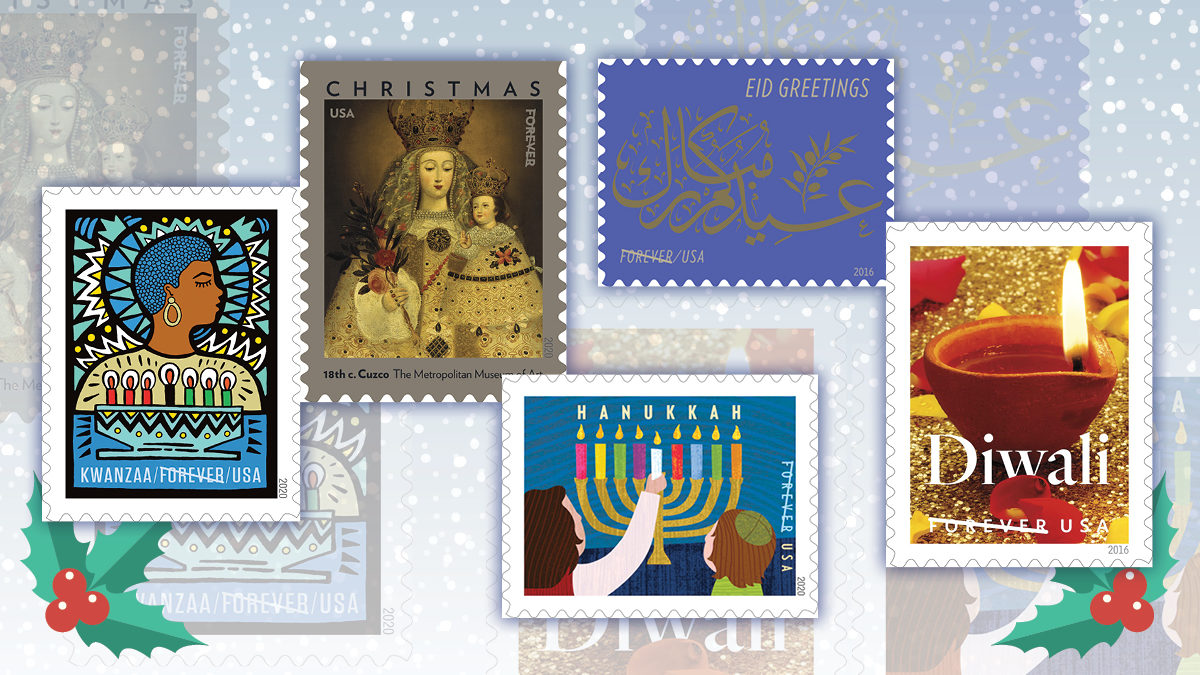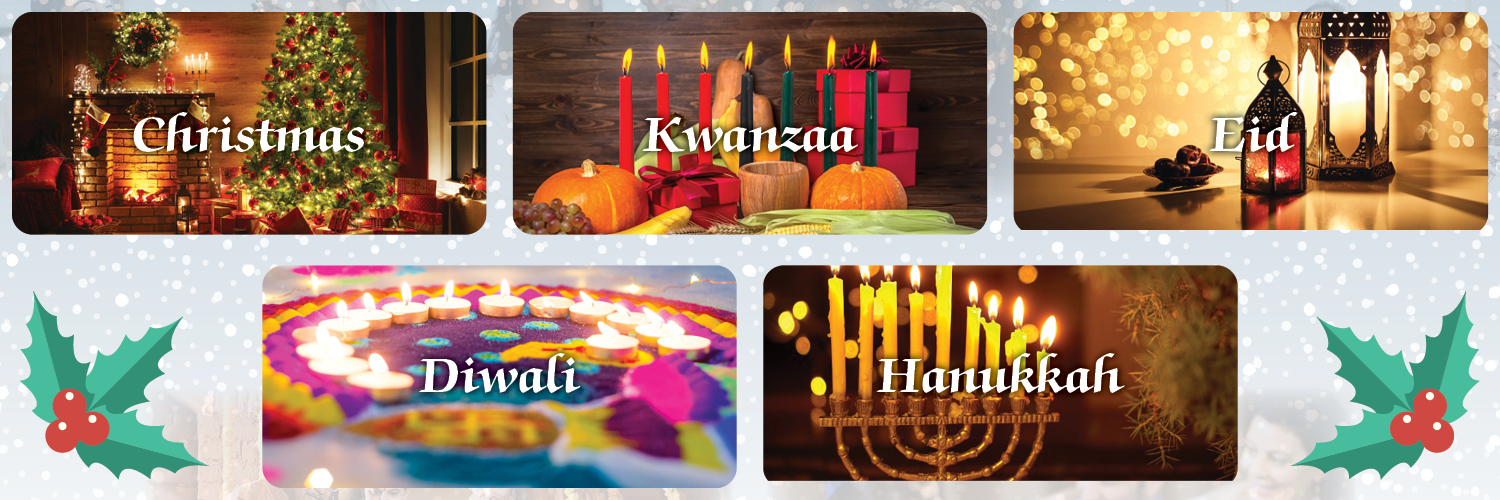
Acknowledging observances celebrated by various cultures
For many folks, celebrating the holidays will be a little different this year as we continue to practice social distancing.
But don’t fret, the Postal Service’s team of essential workers is ready to assist you with spreading holiday cheer. Visit usps.com for shipping supplies and mailing preparation tips as well as gift ideas that can brighten your friends and family’s holiday season.
As we celebrate this upcoming holiday and prepare to continue our own familiar traditions, it’s important to also acknowledge that the world is rich with diversity reflected in the observances celebrated by many various cultures and populations. Knowledge of unique holidays and celebrations can enhance your workplace diversity and inclusion efforts. It can also enrich connections with friends and loved ones.
Millions of people all over the United States don’t celebrate Christmas religiously, either as followers of non-Christian religions (Buddhists, Muslims, Hindus, and Jews — among others) or as individuals with no religious affiliation, possibly atheists or agnostics.
Because many stores tap into the cash value of Christmas with a plethora of Santas, ornaments, and Christmas fanfare, it may be easy to overlook the depth of the diversity present in America during the holiday season. In reality, many different events, whether spiritual, religious or tradition-based, are celebrated in many different ways during these times.
One way to celebrate diversity and inclusion during the holiday season is to take time to build a better understanding and awareness of the traditions and beliefs of others. This learning and awareness activity can even be done with friends and family.
Learn about other Religious or Holiday celebrations. Realize that people celebrate a variety of holidays during this time of year, and some people choose to celebrate none. Be open-minded and respectful of these differences by taking an interest in other people’s traditions and making them feel welcome. Don’t be afraid to ask people what holidays they celebrate.
You can also find out what they do during this time of the year that is unique and special to them and their families. Let it be an opportunity to learn about different cultures and religions and the traditions that accompany them.
Another thoughtful idea is to take a few minutes to mark your calendar and address book with the holidays that your friends celebrate. They may be holidays like Kwanzaa, Hanukkah, Ramadan and Diwali. Find out the dates and record them as reminders.
The annual Pan-African holiday Kwanzaa, which takes place over seven days from Dec. 26 to Jan. 1, brings family, community and culture together for many African Americans. Created in 1966 during the height of the Black Freedom Movement, Kwanzaa was conceived as a unifying holiday in the face of struggles to end racial oppression in the United States. Today, millions of African Americans gather with friends and family throughout the week of Kwanzaa to honor the Nguzo Saba — Unity (Umoja), Self-Determination (Kujichagulia), Collective Work and Responsibility (Ujima), Cooperative Economics (Ujamaa), Purpose (Nia), Creativity (Kuumba) and Faith (Imani).
Families also come together each year to celebrate Hanukkah, the joyous Jewish holiday also called the Festival of Lights which begins Dec. 10 and ends Dec. 18. The story of Hanukkah — “dedication” in Hebrew — tells of reclaiming the Temple in Jerusalem, which had been desecrated by a conquering army. Worshippers prepared to rededicate the holy space but discovered that only one small jar of consecrated oil remained, enough to last one day. Rather than wait for more oil to arrive, they lit the Temple menorah, which burned for eight days. This miracle of the oil is celebrated during Hanukkah with the ceremonial lighting of the hanukkiah, the nine-branched menorah used during the holiday.
Ramadan is a time to detach from worldly pleasures and focus on one’s prayers. Ramadan 2020 began on April 23 and ended on May 23. Many Muslims dress more conservatively during Ramadan and spend more time at the mosque than at any other time of the year. Fasting is an exercise in self-restraint. It’s seen as a way to physically and spiritually detoxify by kicking impulses like morning coffee, smoking and midday snacking. The end of Ramadan is celebrated by a three-day holiday called Eid al-Fitr. Children often receive new clothes, gifts and cash.
The festival of Diwali, which is also known as Deepavali, is one of the most important annual Hindu events. In 2020, Diwali was Nov. 14. The holiday celebrates the triumph of good over evil. Spanning five days each autumn, it is considered by some to be the start of the new year.
When writing holiday cards to friends and family, recognize their holidays, include a short-handwritten note acknowledging their celebrations and browse through the Postal Store (store.usps.com/store/home) for a stamp that depicts that holiday.
Enjoy your celebrations this year and embrace learning about what colleagues, friends and extended family do too.
Cheers!
Written by Evelina Ramirez, USPS Strategic Communications Specialist
